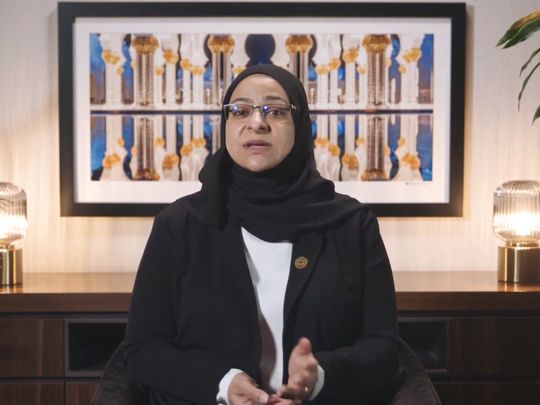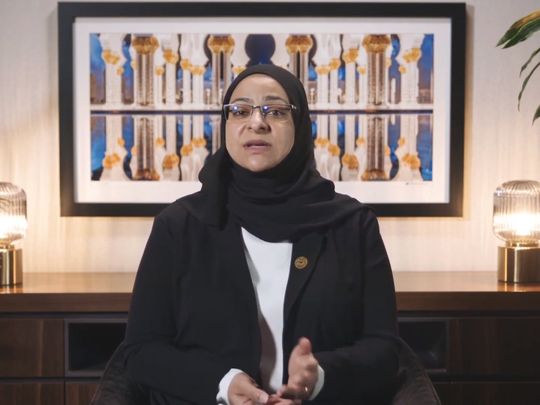From chalk boards to smart boards – tech takeaways from Dubai education summit

Image Credit: Supplied
Dubai: As technology continues to rapidly change the world, students today face “an unknown future” regarding schooling, skills and careers, a Dubai-based expert told the virtual ‘GESS Education Global Leadership Summit’ this week.
Huda Ramadan, Schools Relation Manager, Expo 2020 Dubai, said: “In 2021, we find ourselves preparing students for an unknown future, for a global education system that is ever-changing, that we don’t even know what careers will exist for our new kindergarten students, or what post-secondary education will look like for those future careers.”
‘Why memorise facts?’
Ramadan added. “What I have noticed over the last few years is that technology has developed rapidly, changing the way students think about education; questioning why they should memorise facts or look through a book when everything is available on the internet.”
Although “we’ve gone from chalk boards to smart boards, and even augmented reality in the classroom”, what students are taught and how they are taught has changed very little, falling behind the demands of new skills for evolving careers, Ramadan said.
“In reality, the content of education, over this last century has actually not changed very much around the world. Students will start school around four or five years of age, they get put into a classroom with 20 or 30 students, and everyone is taught very similar content until they’re 18 years old, when they have to decide which university or college they want to attend.”
New philosophy
Ramadan said new research and experiences of last year – referring to the COVID-pandemic – have “changed our understanding of how students learn”. The old one-size-fits-all model should be – and already has to some extent – phased out, she added.
Last year, schools worldwide had to shift suddenly to full distance learning because of COVID-19 lockdowns. Over time, students studying from home adapted to become more independent learners, conducting online research and accessing digital education resources. Many pupils created their own online platforms for learning.
Ramadan said: “Now, we find the teachers do not need to rely on direct instruction on rote learning to educate our children, but rather they’re emphasising the importance of appreciating every student individually. And rather than fitting all students into one mould, education is now focused on allowing students the opportunities to explore their interests, and actually develop those skill sets required for their own dream careers.”
Lessons learned
She added: “We also find that teachers are no longer simply imparting knowledge, they’re now becoming facilitators for learning and supporting students on that learning path, in which we’ve started showing students how their learning applies to their real life, which ensures that learning continues once they have actually left the classroom, meaning that students now understand that learning can happen anywhere, anytime, at any pace that suits their interests.
‘Life experiences’
“This year, we also learned and appreciated that education is just as much about life experiences, as it is about those academics. It’s also about how people and individuals, adapt, and collaborate. And that’s about no longer confining education to the actual classroom, but about making life experiences as meaningful as possible.”
What is GESS?
The two-day virtual GESS summit featured discussions by local and overseas educators reflecting on the pandemic’s impact on schooling, among many other topics. GESS, or Global Educational Supplies and Solutions, is an annual trade fair held in Dubai (and other cities), which is currently scheduled to physically return in November.


